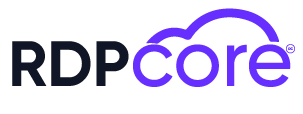Essential Steps and Precautions for Enhancing Your Website Security
Website security is crucial for protecting both your visitors and your business. Cyberattacks, data breaches, and other security threats can jeopardize your website and customer data. Therefore, implementing various security measures is essential. Here’s what you need to do to enhance your website’s security and the precautions you should take:
1. Use Strong Passwords
Strong passwords are fundamental to website security. They should be complex, long, and include a variety of character types. Here are some tips:
- Complex Passwords: Use a mix of uppercase and lowercase letters, numbers, and special characters.
- Password Managers: Utilize password managers to create and store unique and strong passwords.
- Regular Updates: Regularly change your passwords and avoid using old or reused ones.
2. Obtain an SSL Certificate
An SSL (Secure Sockets Layer) certificate encrypts the data transmitted between your website and its users, enhancing data security. Here are the benefits of having an SSL certificate:
- Encryption: It encrypts users' personal and financial information, ensuring secure transmission.
- Trustworthiness: An SSL certificate increases your website’s credibility and helps build trust with users.
- SEO: Search engines consider SSL certificates as a ranking factor, which can improve your site’s search engine visibility.
3. Use Firewalls and Antivirus Software
Firewalls and antivirus software are crucial for protecting your website and servers from malicious threats. These tools help detect and prevent harmful attacks. Here’s what you should do:
- Web Application Firewall (WAF): Use a WAF to protect your web application and block malicious traffic.
- Antivirus Software: Install up-to-date antivirus software on your servers and computers to safeguard against viruses.
- Security Updates: Regularly update your security software and firewall to protect against new threats.
4. Software Updates and Patching
Keeping your website and software up-to-date is vital for closing security vulnerabilities. Here’s how to manage updates:
- Automatic Updates: Enable automatic updates for your website’s software and plugins.
- Patching: Apply patches to address security vulnerabilities and keep your software secure.
- Compatibility: Ensure all the software used on your site is compatible and reliable.
5. Backup Strategies
Backups are essential for data protection and recovery in case of data loss. Implement these backup strategies:
- Regular Backups: Regularly back up your website files and databases.
- Cloud Backups: Store backups in cloud-based services to protect against physical damage or hardware failure.
- Test Backups: Periodically test your backups to ensure they can be restored without issues.
6. User Access Controls
User access controls prevent unauthorized access to your website and data. Implement these measures:
- Role-Based Access: Grant users access only to the information and features they need.
- Multi-Factor Authentication (MFA): Use MFA to require additional verification steps during user login.
- Access Logs: Monitor access logs to detect and investigate suspicious activities.
7. Monitoring Security Protocols
Monitoring security protocols helps detect potential threats early. Here’s what to consider:
- Security Monitoring Tools: Use security monitoring tools to track and respond to security incidents.
- Security Reports: Regularly review security reports to assess your site’s security posture.
- Incident Response Plans: Develop and test incident response plans for addressing security breaches.
Conclusion
Website security is vital for protecting against cyber threats and ensuring data integrity. By using strong passwords, obtaining an SSL certificate, employing firewalls and antivirus software, keeping software updated, implementing regular backups, managing user access controls, and monitoring security protocols, you can significantly enhance your website’s security. Taking these measures helps ensure the safety of your website and customer data.
Leave a comment
Your email address will not be published. Required fields are marked *




